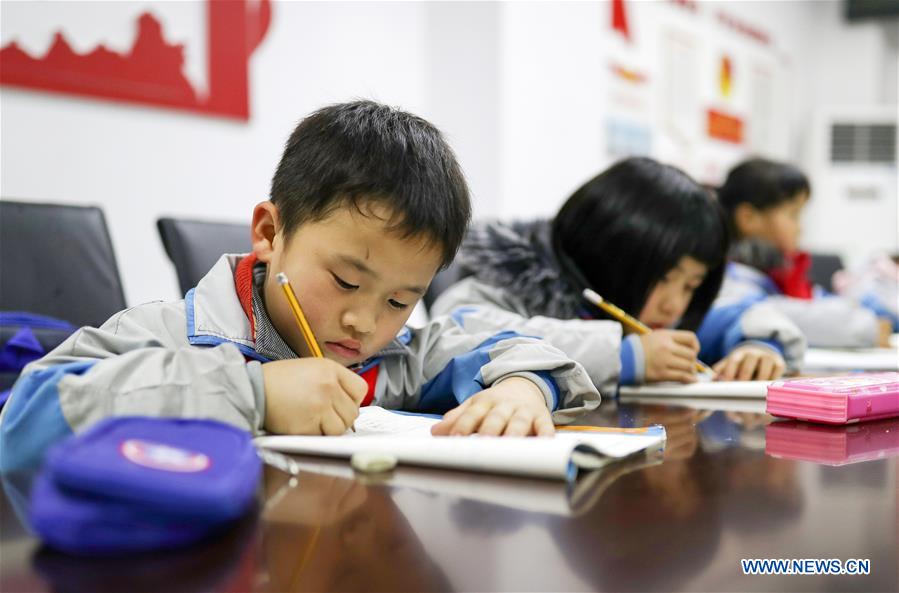
The introduction of a homework circuit breaker by a primary school in southern China, which told students to stop working on assignments after 9:30 pm to ensure they have enough sleep, has sparked debate on the best way to reduce academic pressure.
The school in Nanning, capital of the Guangxi Zhuang autonomous region, announced recently that students would not be criticized for homework left unfinished after 9:30 pm.
It is not the first school or local education authority in the country to adopt such methods to implement the national "double reduction" policy, which aims to reduce students' homework and extracurricular tutoring during their nine years of compulsory education.
While some said the regulation could ensure children get more sleep, many others doubted it was the best way to fundamentally reduce their academic burden.
Xiong Bingqi, director of the 21st Century Education Research Institute, said cooperation from parents will be needed if the measure is to work, because some ask their children to do extra assignments.
"After finishing homework assigned by schools, some students have to continue doing assignments arranged by their parents or extracurricular institutions until 10 pm or 11 pm, so it's not a problem solely decided by schools," Xiong said.
And even though schools may allow students to stop doing homework at 9:30 pm, many parents will be concerned that the unfinished assignments may affect their children's scores or academic rankings, he said.
Since the "double reduction "policy was launched in 2021, most primary and secondary schools in China have reduced students' workloads to some extent.
According to a notice issued by the Ministry of Education in 2021, primary school students should have 10 hours of sleep a night, with middle school students expected to sleep for 9 hours.
"The proportion of children having reached the standard isn't high, because parents may focus more on children's academic performances than the cultivation of their time-management habits," Xiong said.
He said the fundamental reason for the academic burden placed on students is the country's education evaluation system. The middle school and college entrance examinations still rely on single scores to assess students, and parents are keen for their children to gain a competitive advantage.
Without changes to the evaluation system, it will be difficult to alleviate the academic burden on students, Xiong said.
"We must promote deep-seated reforms in education evaluation," he said. "Otherwise, these measures to reduce the burden are merely superficial actions rather than substantive relief."


